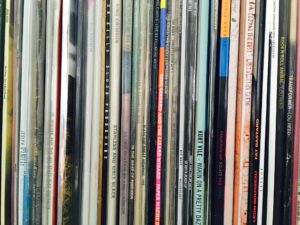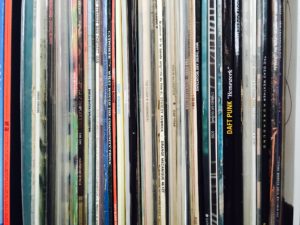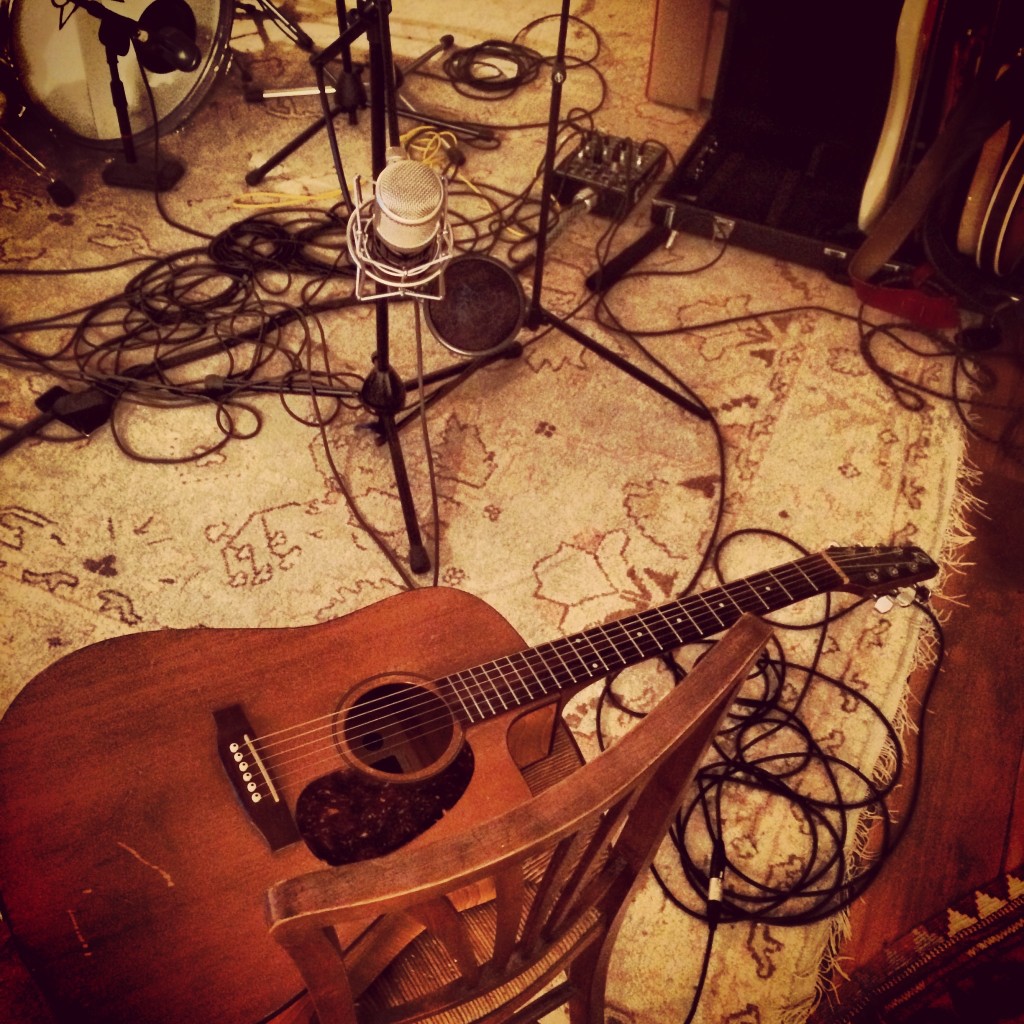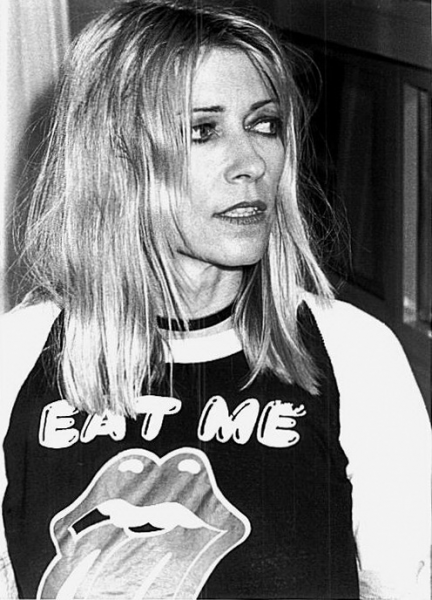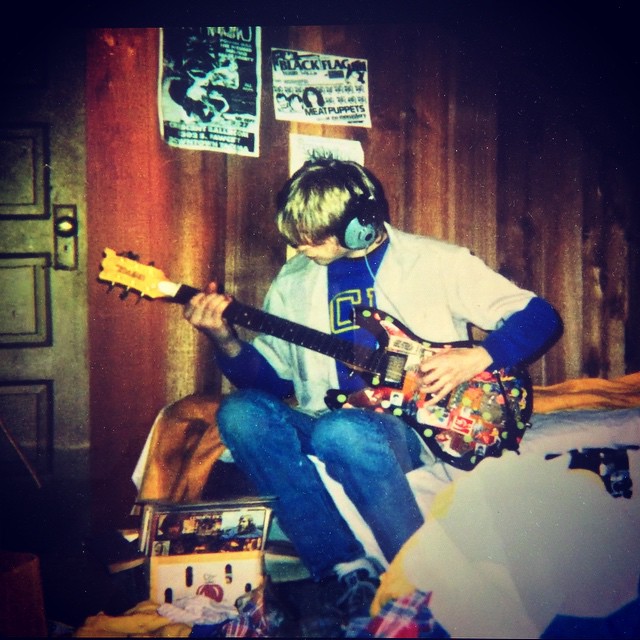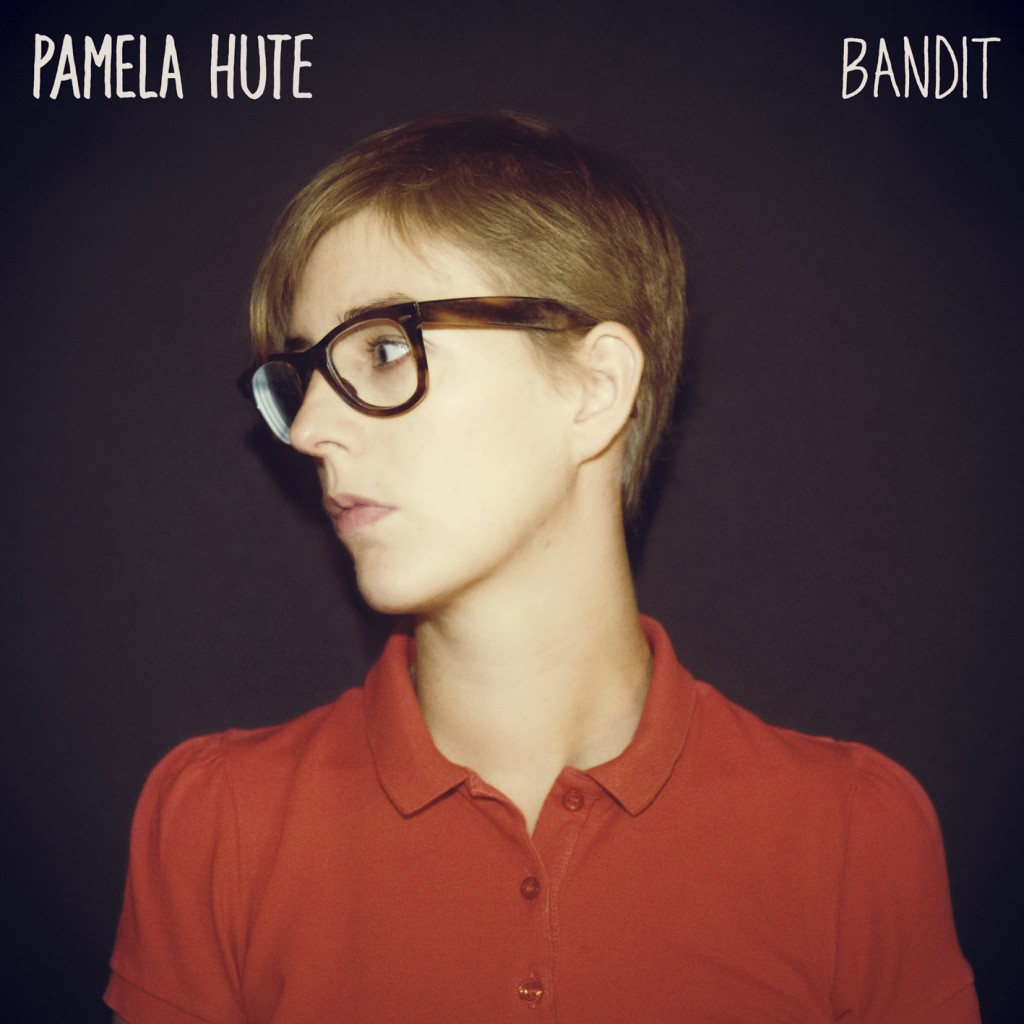J’ai mis du temps à sauter le pas, mais ça y est je me suis abonnée à Spotify.
Pourquoi Spotify et non Tidal ou Apple Music, ou encore Deezer? Je ne sais pas. En grande partie parce que j’avais envie de varier les plaisirs, ne pas avoir un mac tout Apple, et parce que j’en avais assez de ne pas pouvoir écouter les playlists Spotify des artistes que j’aime.
Ce qui m’intéresse ici n’est pas la part ridicule reversée à l’artiste ou le fonctionnement économique du système, mais la façon dont le streaming modifie nos habitudes d’écoute.
Jusqu’à il y a un mois, je n’étais abonnée à aucun service de streaming. Mon téléphone était rempli de mp3 que je téléchargeais consciencieusement à partir des cartes de download récupérées dans les vinyles. Je n’achète plus de cds depuis des années, mais beaucoup (trop) de vinyles. Je n’écoute pas de musique dans la rue ou dans le métro, je n’ai pas de casque Beats ou Marshall à 300 euros, et mes habitudes étaient jusqu’alors assez old school. Je découvrais des artistes par recommandation, ou par le net, sur des sites spécialisés, fouillais sur youtube ou sur le site de l’artiste pour en savoir un peu plus sur son actu, ses projets, et si j’amais, j’achetais le vinyle. Parfois même aux US, directement auprès des labels, quand les artistes n’étaient pas disponibles en Europe, et tout en me délestant de 30 euros de frais de ports. Mais toujours avec le sourire et la certitude d’avoir soutenu un groupe indépendant de qualité et donc d’avoir fait avancer l’humanité dans le bon sens.
Puis j’écoutais ensuite le vinyle chez moi, au calme.
Spotify m’a obligée à changer un peu ces habitudes. Tout d’abord j’ai acheté un connecteur bluetooth pour pouvoir piloter facilement l’appli de mon tel ou mon ordi et profiter du plaisir de mon système de son sans envahir mon appartement de cables. Quand ça marche c’est plutôt pas mal.
Alors, un nouveau monde s’est ouvert à moi et j’ai erré dans l’immensité du catalogue Spotify.
Cette errance m’a permis d’écouter beaucoup de musique, beaucoup plus que d’habitude. A force de rebondir sur une suggestion de l’algorithme, d’écouter les playlists, d’aller fouiller chez mes contacts et espionner leurs préférences, j’ai perdu un temps précieux, fait quelques découvertes, mais en vérité, rien de véritablement marquant.
Le streaming rend passif et fainéant. Ma platine ne tourne plus, mais j’écoute tout, beaucoup, ce qu’on me suggère, ou ce qu’on ne me suggère pas, des albums anciens, des nouveaux, je découvre des artistes que m’étaient inconnus, et mon cerveau ne fait absolument plus la part des choses. Je ne peux pas vous citer le nom d’une seule découverte.
J’écoute beaucoup, vite, et mal.
Oui, le streaming nous encourage à une consommation quantitative et non qualitative, il n’y a aucun doute. L’immensité de l’offre n’est absolument pas contrebalancée par une démarche artistique des plateformes. Il y a certes des recommendations, par style, mais elles tombent à côté de la plaque une fois sur deux parce que c’est un robot qui applique son algorithme en fonction des albums écoutés par l’utilisateur, du temps passé sur tel ou telle page, de la vitesse à laquelle ce dernier à zappé le titre etc. L’automatisation tue complètement la dimension personelle de l’acte d’écoute. C’est un gavage organisé.
On peut toujours essayer de dégotter de bonnes playlists spécialisées, mais c’est long, fastidieux, et les choses vraiment intéréssantes sont bien cachées.
Pour un consommateur avisé, cette immensité donne la nausée.
A mon sens, une plateforme de streaming devrait être comme un disquaire. On ne devrait pas tout avoir à dispo, mais chaque plateforme devrait obéir à une ligne artistique. Aussi les fans de jazz, soul, musique du monde iraient plutôt chez untel et les mordus de pop rock indé plutôt chez trucmuche. A cela s’ajouteraient des mises en avant censées, obéissant à une ligne artistique cohérente, comme lorsqu’un magasin de disque fait découvrir des choses à ses clients. Il y aurait des spécialistes.
Evidemment, si mon rêve se réalisait, le marché serait morcelé en une multitude de petites offres de streaming. Il y aurait les gros, bien sûr, mais on pourrait aussi aller chez les petits qui feraient un travail humain et à une échelle concevable, de défrichage et de découverte. Comme dans la vraie vie.
D’une façon plus générale, je pense qu’il faut remettre de la personnalité et de l’humain dans toutes nos entreprises, qu’elles soient commerciales, ou artistiques. Personne ne peut s’identifier à la société telle qu’elle fonctionne aujourd’hui, et ces plateformes sont un énième exemple d’un modèle vide de sens, où l’on accumule des catalogues d’oeuvres dans une immensité qui n’est pas absolument structurée.
Quelle culture musicale pourrions-nous bien nous forger en abandonnant nos oreilles à spotify et consorts?
Une culture chaotique et sans histoire, artificiellement assemblée par un robot qui, par définition, n’est pas très humain.
J’hésite à me désabonner.
